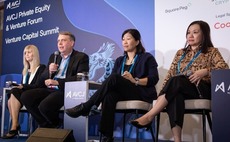
End of an era as KKR sells Seven West
With KKR's exit from Seven West Media, the two investments that arguably defined Australia’s boom market of the mid-2000s have now entered the history books.
KKR agreed to acquire half of what was then known as Seven Media Group in November 2006 for A$735 million (then $565 million) in convertible notes and A$2.5 billion in debt. One month earlier, CVC Capital Partners took a 50% stake in PBL Media - later renamed Nine Entertainment - for A$4.5 billion, A$982 million of it in convertible notes.
Neither deal turned out quite as intended: Nine is a write-off while Seven became a damage limitation exercise. KKR merged the business with West Australian Media (WAM) in February 2011 in A$4.1 billion deal that saw its equity stake fall to 12.6% from around 45%. The 11.8% the PE firm had left last week was sold via the public market for A$265 million. Sources familiar with KKR describe the investment as "net positive."
"I struggle to think of a PE firm doing a media deal of this size again," says Mark McNamara, head of private equity at King & Wood Mallesons. "It's a cyclical landscape and then there are significant structural challenges facing the media industry."
The premise for the investments was strong enough. Seven and Nine controlled two of Australia's three fully commercial free-to-air television networks, plus extensive print and online publishing assets, and the advertising market underpinning it all was robust. Then the global financial crisis hit and a revival was stymied by wider changes in the advertising markets as buyers embraced digital platforms.
Although the two firms faced similar challenges, performance differed, according to Megan Brownlow, executive director at PricewaterhouseCoopers (PwC), with Seven overtaking its rival in 2007.
"First, Seven got two big US shows - Desperate Housewives and Lost - which were immediately successful," Brownlow says. "Second, it developed in-house capabilities for producing drama content. More than half of Australian households have personal video recorders (PVRs) so they can skip through the ads. Seven's in-house capabilities meant it was better positioned to adapt to in-program advertising."
Nine subsequently narrowed the gap, but it didn't buy enough time for CVC. Neither did the divestment of non-core assets. Creditors came in last October and completed a debt-for-equity swap that all but wiped out CVC's A$1.4 billion interest in the company. If the public markets had been more favorable in 2011 and Nine had managed to go public, the PE would have had more control over the fate of its investment.
As for Seven, the merger with WAN gave the business scale at a time when it was much needed. And while the deal may have limited KKR's upside, it also provided a clear path to exit. "CVC was in a deadline situation and KKR was not," Brownlow adds. "If you can't choose the timing of your exit then you don't control the process."
Latest News
Asian GPs slow implementation of ESG policies - survey
Asia-based private equity firms are assigning more dedicated resources to environment, social, and governance (ESG) programmes, but policy changes have slowed in the past 12 months, in part due to concerns raised internally and by LPs, according to a...
Singapore fintech start-up LXA gets $10m seed round
New Enterprise Associates (NEA) has led a USD 10m seed round for Singapore’s LXA, a financial technology start-up launched by a former Asia senior executive at The Blackstone Group.
India's InCred announces $60m round, claims unicorn status
Indian non-bank lender InCred Financial Services said it has received INR 5bn (USD 60m) at a valuation of at least USD 1bn from unnamed investors including “a global private equity fund.”
Insight leads $50m round for Australia's Roller
Insight Partners has led a USD 50m round for Australia’s Roller, a venue management software provider specializing in family fun parks.






